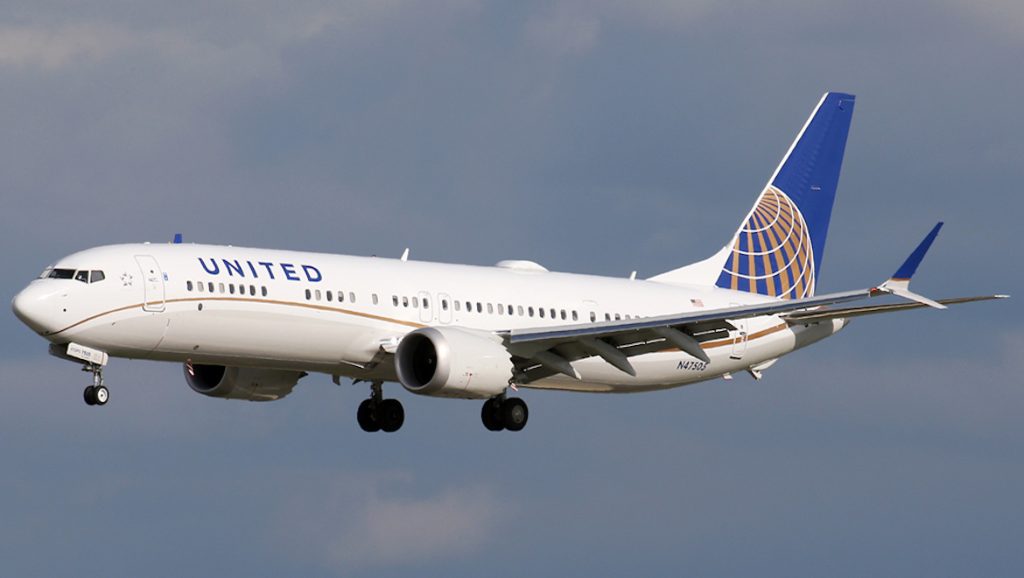
United Airlines has announced it will return the Boeing 737 MAX to commercial service from 11 February, with regularly scheduled flights from its hubs in both Denver and Houston.
The airline has said it will continue to operate non-MAX aircraft along the same routes, should passengers prefer not to travel onboard the recently re-certified 737 MAX.
The airline’s full schedule for February will be released on 6 January 2021.
“Nothing is more important to United than the safety of our customers and employees, so United’s Max fleet won’t return to service until we have completed more than 1,000 hours of work on every aircraft, including FAA-mandated changes to the flight software, additional pilot training, multiple test flights, and meticulous technical analysis to ensure the planes are ready to fly,” the airline said in a statement.
United also promised to be “fully transparent” with its customers, and let them know ahead of time if they are booked to fly on a 737 MAX.
United follows rival airline American Airlines in returning the jet to passenger service.
American has said it will conduct its first passenger flights on the embattled jet from 29 December, with single daily round trips between Miami and LaGuardia.
Elsewhere, Brazilian airline GOL became the first airline in the world to fly passengers on the Boeing 737 MAX in almost two years earlier this month, when its 737 MAX 8 aircraft, registration PR-XMB flew from its hub in São Paulo to Porto Alegre.
The US grounding order of the MAX was lifted by the Federal Aviation Administration on 18 November, which reinstated the aircraft for commercial use, with some caveats.
These included mandatory updates to the notorious MCAS system – largely identified as the cause of the two fatal crashes – additional sensors implemented, and further pilot training protocols.
Brazil’s civil aviation authority was quick to follow the FAA’s lead in recertifying the aircraft for commercial use, however, in a largely unprecedented move, other global aviation regulators are holding back on blindly following the lead of the FAA in regulatory decisions.
Regulators in Canada and Europe have both stated they will follow through on independent testing of the aircraft, and will hold off on recertifying the aircraft until the new year.
Meanwhile, Chinese regulators have made no mention of recertifying the aircraft.
In the past, regulatory decisions on aircraft were largely left to the aviation regulator in the same jurisdiction as the planemaker, however the MAX has seen international regulators taking more initiative on the decision.
Canadian regulator Transport Canada has said it will reform the way it validates aircraft, and take a harder look at the relationship between regulators and the manufacturers they oversee, in light of the Boeing 737 MAX fiasco.
Transport Canada’s director general of civil aviation, Nicholas Robinson, said the regulator would “have to look at the interaction that different authorities have with their manufacturers” during a Canadian hearing on aircraft certification and the MAX disasters.
The MAX has seen both Boeing and the FAA face scrutiny over what US law makers have called the “undue influence” that Boeing has over the US regulator’s certification processes.




